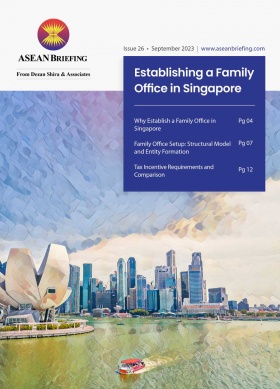Cambodia Increases Minimum Wage for Garment, Footwear, Travel Product Sectors for 2024
Cambodia’s key GFT industries, encompassing garments, footwear, and textiles, are set for a minimum wage increase in 2024. We’ve observed the adjustments in minimum wages for the respective worker categories—regular, probationary, and piece-rate workers. Cambodia has increased the minimum wage for these industries, which serve as the backbone of its economy, despite a sluggish global economy that is already impacting the country’s apparel exports.
Cambodia has increased the minimum wage for the textile, garment, footwear, and travel product industries for 2024 under a decision made by the National Council on Minimum Wage (NCMW), a tripartite body comprising equal representation of labor unions, employer’s associations, and the government, through Prakas 283.
As of August 11, Cambodia boasted a total of 1,077 factories employing 764,358 workers, per data from the Textile, Apparel, Footwear & Travel Goods Association in Cambodia (TAFTAC). Among these factories, 802 are dedicated to garment production, 140 specialize in footwear manufacturing, and 134 are involved in the production of travel goods.
What is the new minimum wage?
The new minimum wage for the textile, garment, footwear, and travel product industries in 2024 will be:
- US$204 per month for regular workers; and
- US$202 per month for probationary workers.
The minimum wage in 2023 is US$200 per month.
Prakas 283 also sets out the minimum wage for piece rate workers. Such workers are paid based on their level of production and could result in the worker earning more than the minimum wage if their production results in pay that is higher than the minimum wage rate. However, if their production results in pay that is deemed lower than the minimum wage then the workers’ pay is adjusted to equal that of the minimum wage (US$204 per month for regular workers or US$202 per month for probationary workers).
The new salary will be effective from January 1, 2024.
In determining the minimum wage, the NCMW studies the following criteria:
- Inflation;
- Cost of living;
- Productivity;
- Competitiveness;
- Sector profitability; and
- The current labor market situation.
What other benefits do workers in Cambodia receive?
In addition to the minimum wage, workers will also receive the following benefits:
- Attendance bonus — US$10 per month;
- Travel and accommodation expenses — US$7 per month;
- Meal allowances — US$0.50 per day; and
- Overtime and seniority bonus — US$2-US$11 per month for those between their second to the eleventh year of work.
Textile and garments: The backbone of Cambodia’s economy
Garments, footwear, and textiles manufacturing (GFT industries) continue to be the backbone of Cambodia’s economy, despite efforts to diversify. Altogether, the industries are the country’s largest employers with over 700,000 workers and represent more than half of total export earnings.
Between January and July of this year, garments, footwear, and travel exports fell by 20.44 percent to US$6.27 billion, a decline from US$7.89 billion from the previous year, and reflecting sluggish global demand.
Overall, textile, apparel, footwear, and travel goods exports in the previous year amounted to US$12.5 billion, representing approximately 60 percent of the nation’s total export value and contributing 10 percent to Cambodia’s overall economy.
In addition, the reduction of the Everything but Arms (EBA) benefits by the European Union, the non-renewal of the Generalized System of Preferences (GSP) by the US, and the Ukraine-Russia conflict have also impacted GFT exports. An EBA status gives a country duty-free access to the EU market, and Cambodia was provided tax breaks and holidays for its manufacturing, tourism, agriculture, and property industries. The EU cited human rights abuses in Cambodia as the main reason for withdrawing the EBA status.
With additional inputs from Melissa Cyrill.
About Us
ASEAN Briefing is produced by Dezan Shira & Associates. The firm assists foreign investors throughout Asia and maintains offices throughout ASEAN, including in Singapore, Hanoi, Ho Chi Minh City, and Da Nang in Vietnam, in addition to Jakarta, in Indonesia. We also have partner firms in Malaysia, the Philippines, and Thailand as well as our practices in China and India. Please contact us at asean@dezshira.com or visit our website at www.dezshira.com.







